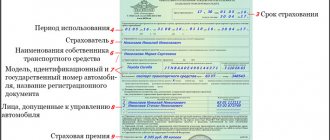Difference from similar articles
When deciding on a punishment, the article under which the actions of the guilty person are qualified is taken into account, therefore it is necessary to understand the types of crimes that are similar to theft, but provide for a different punishment and fix responsibility under another article of the Criminal Code of Russia. In particular, the actions of a guilty person are recognized as car theft only after confirmation of the motive. A similar criminal offense is theft of a vehicle.
| The difference between theft and theft | |
| Hijacking | Theft |
| The motive can be selfish (the goal is to use someone else’s vehicle for free, to ride for free) or other (the goal is revenge, envy, to scare). | The motive is exclusively selfish, the goal is to seize a stolen vehicle and turn it into one’s own favor in any form - disassembly and sale in parts, resale, personal use. |
| The commission may be associated with an attack on the owner, that is, it may be open. | Only secret seizure, when the owner of the car has no idea that a crime has been committed. |
| The punishment is imposed under Article 166 of the Criminal Code. | Prosecution occurs under Article 158 of the Criminal Code of Russia. |
Details: Punishment for theft under Article 158 of the Criminal Code of the Russian Federation
The following types of taking will not be recognized as theft:
- use of a car by a close relative, acquaintance, former spouse who previously received (or had reason to believe that he had the right to) a permit to drive a vehicle;
- operation of a company car by a company employee.
Attention! If, along with the theft of a car, a person stole property that was in the car (for example, a radio was stolen and sold, then additionally the actions are qualified under Article 158 - theft).
Additionally, it is necessary to distinguish theft (provided for in Article 166 of the Criminal Code of Russia) from the following types of violations:
- Fraud, that is, obtaining property rights to transport by deception or abuse of trust of the injured party. Punishment is applied on the basis of Article 159 of the Criminal Code of the Russian Federation, depending on the value of the stolen property and other conditions. For example, the most severe punishment for theft of vehicles worth over a million rubles is up to 10 years in prison.
- Robbery is the open taking of a car without the use of weapons or brute force (threat of physical violence). This means that the offender was aware that his criminal actions were obvious to the owner or other people around him. Liability is established under Article 161 of the Criminal Code. The maximum penalty is up to 12 years in prison.
- Robbery, that is, open seizure of a car using weapons or physical force (the threat of using it). The punishment will be imposed under Article 162 of the Criminal Code of the Russian Federation, with a maximum of up to 15 years in prison.
How many years do you get for stealing a motor vehicle in 2021?
What is he guided by when passing judgment? This is better understood with examples.
Domestic cars are often stolen in Russia. If they are old - 15-20 years old, their cost rarely exceeds 50 thousand rubles. They usually attract the attention of teenagers who want to “ride” themselves.
They carefully plan the crime, commit it secretly from everyone, but still find them and the court qualifies the actions under Part 1 of Art. 166, imprisoning the perpetrators for five years.
A car worth half a million rubles is stolen to be dismantled and sold for parts. Again, all the actions of the attackers are carefully planned. If police officers find them, they will face punishment under Part 3 of Art. 158 of the Criminal Code of the Russian Federation. Only after years will they be released.
Cars worth 1.2 million rubles are rarely stolen, but if this happens, a criminal case is opened under Part 4 of Art. 158 and punish offenders with 10 years of imprisonment.
No matter what car the thieves steal, they must remember that their actions are punishable to the fullest extent of the law. Although a fine is provided for by law, in practice it is rarely imposed, preferring to restrict freedom.
Corpus delicti
A suspect can only be brought to justice if his actions contain all the signs of a crime committed - theft, which are discussed below.
Guilty person - subject
A person who meets the following criteria can be held accountable:
- Individual (criminal punishment of organizations is impossible).
- Sanity (the absence of a stable or temporary mental disorder that interferes with awareness of one’s actions).
- Reaching the age of criminal responsibility is 14 years.
Attention! If during pre-trial proceedings it is established that the offense was committed by a minor citizen (that is, under 14 years of age), then other measures will be applied to him. Registration with the police is mandatory.
Attitude towards an unlawful act - the subjective side
Punishment for car theft is imposed only if the person committed the actions intentionally, that is, he understood that he was violating the law and the rights of others, but deliberately wanted unlawful consequences to occur.
Committing actions aimed at unlawfully taking possession of a car - the objective side
All actions aimed at taking possession of a car or other type of transport entail liability for theft. According to the Supreme Court Resolution No. 25, activation of the engine is optional, that is, punishment will be applied for the following types of actions:
- rollback;
- transportation by other transport;
- towing;
- hacking the system and leaving.
In addition, it is necessary to confirm the presence of the following mandatory characteristics:
- Illegality , that is, the person at fault did not obtain permission to use the transport and had no reason to believe that such permission had been granted.
- Confirmation of a motive that is not related to theft.
Important! The crime is considered completed from the moment the location of the vehicle changes. Even moving a few meters by any of these methods will be regarded as theft, which entails liability under Article 166 of the Criminal Code.
Object and types of transport, the possession of which entails punishment
Object – the ownership right of the owner of the vehicle. The subject of the crime may be a car or other vehicle. The category of other transport includes all mechanical modes of transport, namely:
- urban transport (trams, buses, trolleybuses);
- two-wheeled transport (mopeds, motorcycles);
- ATVs;
- agricultural machinery;
- construction self-propelled machines.
The full list and requirements for transport are indicated in the contents of the Resolution of the Supreme Court of Russia No. 25 of 2008 (hereinafter, Plenum of the Supreme Court No. 25).
Punishment for car theft
Punishment is applied only by the court after the completion of the pre-trial investigation and after the end of the trial of the case, the establishment and documentary recording of the circumstances of the crime.
Responsibility for the crime depends on the part of the article, which indicates aggravating features for which a more severe punishment is established.
According to Part 1 of Art. 166 punishment for “simple” unlawful taking of a vehicle without the purpose of theft:
- a fine of up to 120 minimums or no more than the total income of the guilty person for one year of work;
- restriction of freedom for no more than 3 years;
- forced labor for a maximum of 5 years;
- arrest up to 0.5 years;
- imprisonment for up to 5 years.
According to Part 2 of Art. 166 for actions committed by a group of persons (two or more people) by prior conspiracy or theft with the use of violence not dangerous to health (threat of using it), liability is stricter:
- a fine of up to 200,000 rubles or the amount earned by the suspect for one and a half years of work;
- forced labor for five years;
- imprisonment for no more than seven years.
Under Part 3, if committed by an organized group or causing particularly large damage, the punishment is imprisonment for up to ten years.
Under Part 4, for the use of violence dangerous to health (the threat thereof), imprisonment for a term of no more than 12 years may be imposed.
Attention! The theft of a police car is not grounds for applying more severe liability, that is, the punishment is imposed under one of the specified parts of the article. But, depending on the motive, the court may accept this as an aggravating circumstance.
Aggravating and mitigating circumstances
Depending on the circumstances of the crime, the court may impose punishment, but only within the limits provided for in the article.
The chosen type of punishment is influenced by the attitude of the guilty person to the crime, reconciliation of the participants, and compensation for losses. Additionally, the court may take into account circumstances that influence the choice of a more severe punishment, but only within the framework of the article (aggravating - specified in Article 63 of the Criminal Code of the Russian Federation). Also, those conditions that, on the contrary, alleviate liability (mitigating - specified in Article 61 of the Criminal Code of the Russian Federation) can be taken into account.
Drunk driving
The Criminal Code of the Russian Federation in some articles directly indicates the state of intoxication resulting from the use of alcohol, drugs or other potent, intoxicating and other similar drugs and drugs as an aggravating circumstance. The article in question 166 is not one of them.
However, Part 1.1 of Art. 63 of the Criminal Code of the Russian Federation (Aggravating Circumstances) provides the court with the opportunity to recognize the commission of a crime while intoxicated as a sign that aggravates responsibility. In doing so, he must take into account a number of circumstances, such as the social danger of the act, the circumstances in which it was committed, the personality of the person held accountable, and also motivate his decision in the verdict.
That is, the fact of driving while intoxicated in itself is not a basis for recognizing it as an aggravating circumstance.
Punishment for kidnapping of minors
If a minor took part in the hijacking, then all types of liability provided for in Article 166 will be applied to him, but to a lesser extent.
The types and limits of these punishments are given in Art. 88 of the Criminal Code of the Russian Federation. In addition, the following types of sanctions may be applied to minor offenders:
- compulsory educational measures;
- placement in special closed-type correctional (educational) institutions.
If the perpetrator is under 14 years of age, the impact occurs in accordance with the provisions of Federal Law No. 120 of June 24, 1999. As a measure of liability, placement in special educational institutions of open or closed type may be used.
Attempted hijacking
If a person began to carry out actions aimed at stealing a car, but then he himself refused to commit a crime (theft) provided for in Article 166 of the Criminal Code of the Russian Federation, then his actions can be regarded as a voluntary renunciation of the crime.
Punishment, in this case, may be imposed depending on the consequences that occur. That is, instead of an article for hijacking, a different punishment may be imposed, depending on the corpus delicti and the violation committed. For example, if the actions are stopped after breaking the lock, then an article for causing damage to someone else’s property may be applied.
An attempted theft (or, in legal language, an attempted theft) can be considered a situation where the offender stopped unlawful actions aimed at taking possession of the car due to circumstances beyond his control. For example:
- appearance of the owner or witnesses;
- it was not possible to open the locks or disable the alarm.
Important! In case of an incomplete attempt to steal, a punishment will be imposed that does not exceed ¾ of the maximum possible punishment provided for in Art. 166 of the Criminal Code.
What is car theft from the point of view of the Criminal Code of the Russian Federation?
In accordance with the literal understanding of Article 166 of the Criminal Code of Russia, theft is understood as the unlawful taking of a car or other vehicle without the purpose of stealing it.
Translated from legal language into a more understandable language, this means approximately the following:
Thus, to qualify actions under the article “theft”, the purpose of taking possession of a car is important . If the plans of the culprit did not include such a selfish goal as the theft of a vehicle, then his actions fall under Article 166 of the Criminal Code of the Russian Federation.
In practice, in order to find yourself accused under this article, it is enough to drive someone else’s car without permission, literally a few meters, or even push her with your hands for a joke around the corner of a neighboring street.
Statute of limitations for prosecution
The statute of limitations is the period of time during which a person can be held accountable. This period is calculated from the day the crime was committed. It varies depending on the imputed part of Article 166.
| Part of Article 166 | Severity | Prescription of liability |
| 1 | average | 6 years |
| 2 | Heavy | 10 years |
| 3 | Heavy | 10 years |
| 4 | Particularly severe | 15 years |
Did the article help you?
Not really









